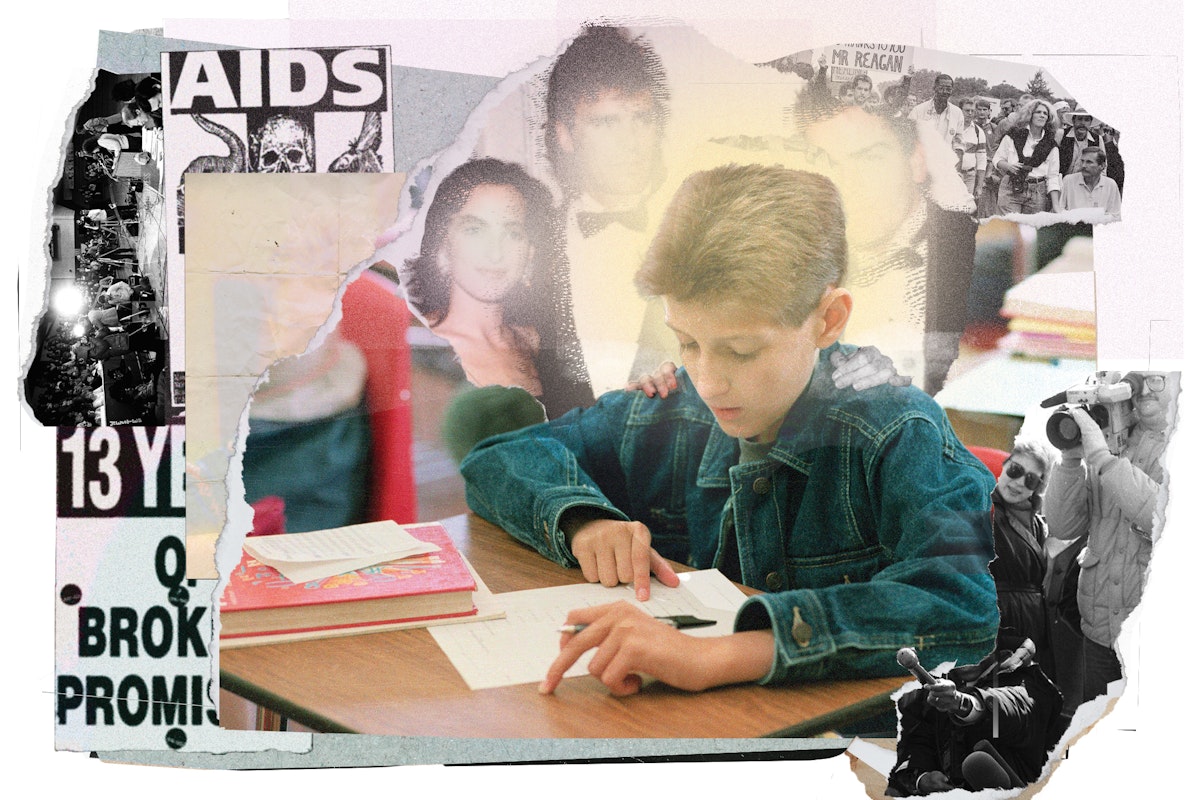
Following months of legal fights, the White family had triumphed in the legal arena, and Ryan was allowed back in school, albeit subject to extreme measures meant to assuage fears. He had to use separate bathroom facilities (“cleaned daily”), eat only with disposable utensils, and his trash would be “double-bagged and incinerated.” Nonetheless, 42 percent of the student body stayed home the day of his return, and some students picketed. Eventually, the parents of more than 20 of his classmates launched a breakaway school in a former American Legion hall. The White family eventually relocated from Kokomo to Cicero, Indiana—a move that many in the media depicted as a neat journey from a community mired in ignorance to one bathed in the light of kindness, despite the two towns’ similarities (both, for instance, had historical links to the Ku Klux Klan).
Ryan died from AIDS-related complications in 1990. His funeral was, again, an exceptional event: Some 1,500 people attended, including first lady Barbara Bush and Michael Jackson; Elton John performed. Renfro contrasts this with the funerals of most of those who died as a result of AIDS: “quiet, poorly attended ceremonies.” The politician and celebrity attendees especially grated on some in the community; one man told an Indianapolis Star columnist, “When have they ever gone to the funeral of a gay person who died of AIDS? Where were they in 1981? Where was Barbara Bush in 1981?”
The explanation for the first lady’s whereabouts was obvious: Ryan may have seemed like the boy next door, but for this reason he was not a “typical” person with AIDS. In fact, Renfro writes, “He was not even a particularly representative child with HIV/AIDS, given the epidemic’s disproportionate impact on Black and Brown youth.” It was Ryan’s very exceptionality and the emphasis on his blamelessness that led members of Congress to affix his name to the Ryan White CARE Act, the emergency HIV/AIDS relief bill they managed to pass in 1990. His name rendered the bill both safe and urgent; one political operative wrote of the legislative strategy, “We needed a superstar. And we found him in Ryan White.” Even the viciously homophobic Senator Jesse Helms recognized the utility of this moniker: “The homosexual lobby of America knew the Ryan White story was too good to pass up,” he told fellow senators. Helms sought to weaponize Ryan’s unique celebrity to his own ends—claiming “innocent victims” like Ryan “would never have contracted AIDS had it not been for the perverted conduct of people who are demanding respectability.” Still, legislators voted overwhelmingly to pass the Ryan White CARE Act.




